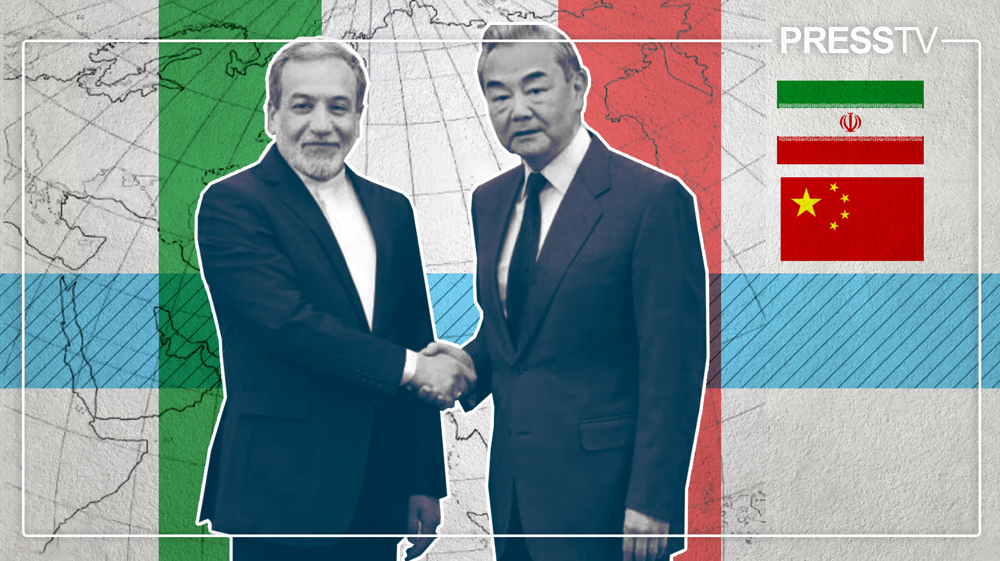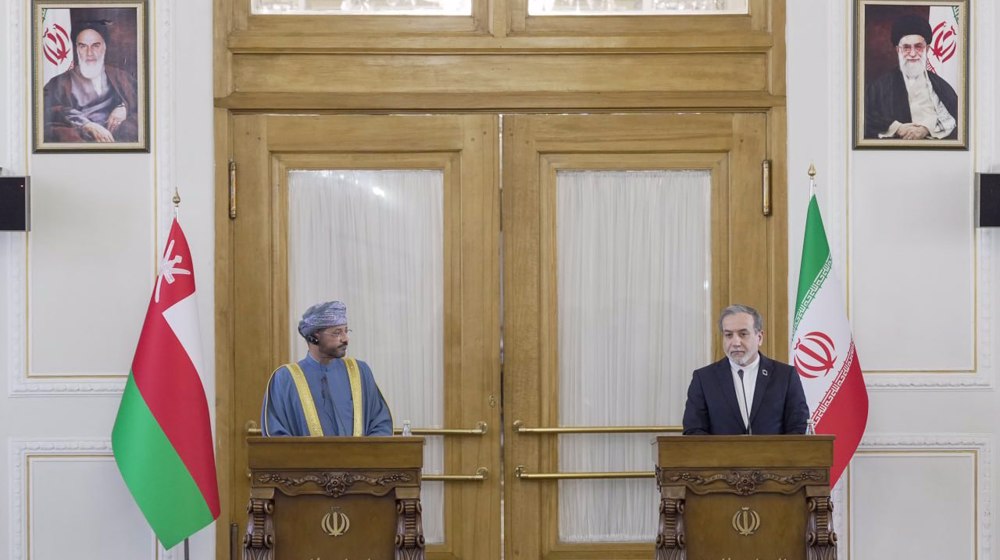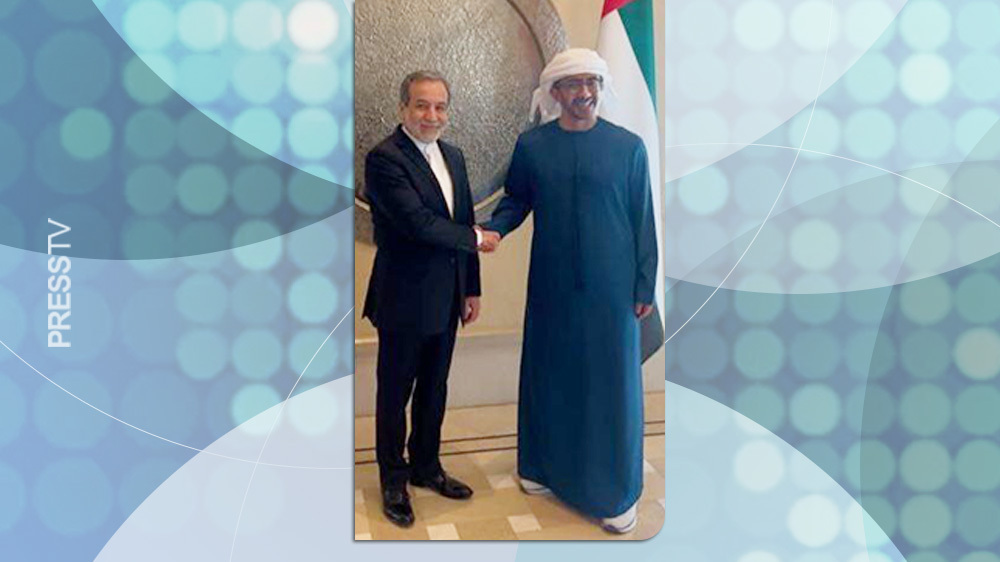Good-faith JCPOA implementation to determine next on US-Iran agenda: Zarif
Iran’s Foreign Minister Mohammad Javad Zarif says the good-faith implementation of the agreement recently reached between Iran and the P5+1 countries over Tehran's nuclear program will pave the way for Iran to address other issues with the US.
“We took a firm step; we did not confuse the nuclear issue with other issues” during the nuclear talks between Iran and the P5+1, Zarif said in an interview with the American magazine The New Yorker, which was published on Tuesday.
“If we stay on the same line and continue good-faith implementation of JCPOA, then we have a possibility to create some confidence that would enable us to deal with other issues,” Zarif said.
“I’ll take one step at a time. But I’ll take firm steps. And you saw that that works,” the Iranian foreign minister stressed.
He said “other firm steps” will be taken about “the next on US-Iran agenda” after the implementation of the JCPOA. When questioned about what steps will be taken, he answered, “One step at a time.”

The Iranian foreign minister further stressed that the termination of the sanctions unfairly imposed on Iran will insure the “longevity” of the Iran-P5+1 agreement – known as the Joint Comprehensive Plan of Action (JCPOA) – and help the building up of confidence that there isn’t any real obstacle in the way of implementing it.
“There are two ways that you implement an agreement. One way is the minimalist approach to implementation – you will do absolutely what is unavoidable – and that is not conducive to producing confidence. The other way of doing that would be to look at sanctions terminations as an insurance policy, to create a different type of interaction with Iran. The United States should look at this not as concessions but as a way to insure the longevity of a very good agreement. And, if they did that, then not only would we have a sustainable agreement but we would build confidence,” Zarif said.
He also said that Iran and the US have not yet turned a page by simply coming to terms on the nuclear agreement.
“The jury is still out. I’m certainly hopeful I didn’t waste two years of my life for nothing! And I’m sure [US] Secretary [of State John] Kerry has the same hope,” Zarif said.
‘Not yet’
He said the JCPOA has “not yet” opened any new way for broader discussion about conflicts in the region, including the crisis in Syria, Yemen, Iraq, and other regional flashpoint regions.
“We were hoping that the implementation of the JCPOA would start reducing some of the mistrust that existed in Iran about the objectives and general policy directions of the United States in the region. Obviously, the comments that we’ve heard over the past two months, which were mostly addressed to the domestic constituencies here in the United States, did not help to alleviate the mistrust,” the top Iranian diplomat said.
‘Substance, not appearance’
Answering a question about why Iranian President Hassan Rouhani was unwilling to see US President Barack Obama despite the US officials’ interest in trying to make that work during the 70th Session of the UN General Assembly in New York, Zarif said, “Because we believe that what is right now on our agenda is the implementation of this agreement, and that is the No. 1 priority. You don’t need to do things that would complicate that. What is important for us is the substance, not the appearances, and I mean photo ops.”
Iran and the five permanent members of the UN Security Council – the United States, Britain, France, China and Russia – plus Germany finalized the text of the JCPOA over Iran’s nuclear program in the Austrian capital of Vienna in mid-July.
Under the JCPOA, limits will be put on Iran’s nuclear activities in exchange for, among other things, the removal of all economic and financial bans against the Islamic Republic.
Syria
During the interview with The New Yorker, the Iranian foreign minister stressed “a national-unity government, a ceasefire, fighting terrorism, constitutional reform, and creation of a permanent government structure based on the new constitutional institutions that have been created” constitute the gist of a four-point plan he has proposed to end the crisis in Syria.
He said Syrian people themselves should decide for their future and “make their own decisions about who should govern them, and how they should be governed.”
Commenting on the goal of Russia’s military campaign in Syria, he said the Russian airstrikes aim “to destroy Daesh.”
Zarif went on to say that Iran supports any campaign that is against Daesh, “provided that it’s serious,” adding that “the military battles alone will not determine the future of Syria” and “at the end of the day, everybody has to negotiate. And I think everybody understands this.”

He also rejected as “wrong” the claims about the presence of Iranian troops in Syria, saying, “We haven’t changed the nature of our presence in Syria. It continues to be military advisers, and no more. Actually, I checked, and I made sure that this was the case.”
Iran and Russia have always supported the people and government of Syria in the face of terrorism, he added.
Moscow began its military campaign against terrorists in Syria on September 30 upon a request from the Damascus government, shortly after the upper house of the Russian parliament gave President Vladimir Putin the mandate to use military force in Syria.
Hamas holds Israel ‘fully responsible’ for safety of detained Gaza hospital director
UN special rapporteur urges boycott of Israel by medical workers
Israeli minister threatens to assassinate Yemen’s Ansarullah leader
Iran's president hopes war, genocide would end in New Year
VIDEO | On the frontlines of Humanity: Dr. Abu Safiya’s heroic stand to save lives under fire in Gaza
Sleepless in Tel Aviv: Yemen's long-range missiles rattle settlers, shake Zionist entity
Sixth Palestinian baby dies of hypothermia as cold grips Gaza
Iran's president urges peace and security in region, Muslim world










 This makes it easy to access the Press TV website
This makes it easy to access the Press TV website